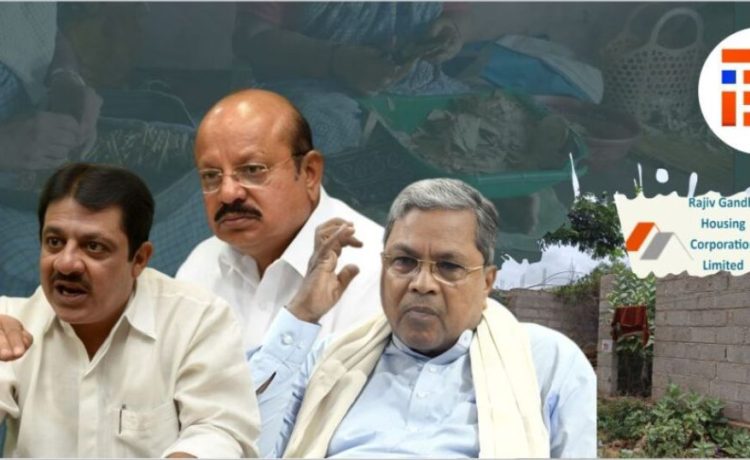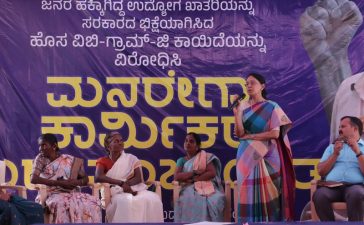🎤 Q&A:
Q1: What is the Revised Integrated Housing Scheme (RIHS)?
A: A central government scheme launched in 2007 to provide affordable housing to eligible beedi workers through direct subsidies and cooperative construction.
Q2: Why is there a delay in construction?
A: Inefficiencies in fund utilization, administrative apathy, lack of monitoring, and bureaucratic delays at state and corporation levels.
Q3: What are the financial consequences of the delay?
A: Karnataka must return ₹15.8 lakh in unused central funds with accrued interest, increasing the state’s financial liability.
Q4: Are these delays limited to one area?
A: No. Across Karnataka, only 42% of houses under various schemes have seen progress. Many districts face similar issues.
Q5: What is the government’s response?
A: While meetings and letters have been exchanged, as of now, no public accountability or detailed clarification has emerged from the implementing agencies.
Q6: Why were the funds not utilized in time?
A: Delays in land allocation, slow beneficiary identification, tendering issues, and lack of coordination between state and central agencies contributed to the failure to utilize the sanctioned funds.
Q7: What happens to the incomplete houses?
A: Many unfinished houses have been abandoned. In areas like Sira taluk, some structures have become overgrown or dilapidated, posing both financial and social concerns. These may require revaluation or reallocation of funds for completion.
Q8: Who is responsible for monitoring the scheme’s implementation?
A: The Rajiv Gandhi Rural Housing Corporation (RGRHC) is the nodal agency at the state level, while the Ministry of Labour & Employment monitors the scheme at the Centre. Local bodies are also involved in execution and oversight.
Q9: What are the eligibility criteria for beedi workers under this scheme?
A: Workers must be registered beedi employees, classified under the Economically Weaker Section (EWS), and should possess land or be eligible for group housing. Caste and income considerations may also apply.
Q10: Can the funds be reallocated or rolled over into the next financial year?
A: Generally, central schemes require time-bound utilization of funds. Unused grants must be returned with interest. Reallocation is only possible with fresh approvals, and often requires revised project proposals.
Q11: How many total houses remain incomplete across Karnataka under various housing schemes?
A: Out of 6,72,499 sanctioned houses statewide, 4,01,072 are under progress — meaning over 2.7 lakh houses are either incomplete, delayed, or yet to be started.
Q12: Have similar issues been reported in other welfare housing schemes?
A: Yes. The PM Awas Yojana (Urban & Rural), Slum Board schemes, and past Rajiv Gandhi Housing initiatives have also faced delays, fund lapses, and corruption allegations, especially in previous administrations.
Q13: What action is the current government taking on previous irregularities?
A: The present Congress-led state government has written to central agencies seeking factual reports on irregularities during the previous BJP regime and has committed to investigating alleged misappropriations in housing tenders.
📱 #BeediWorkers #HousingCrisis #RIHS #KarnatakaHousing #Accountability
Note:
The authentic documents and official correspondence related to this news story can be accessed at www.the-file.in.
![]()











